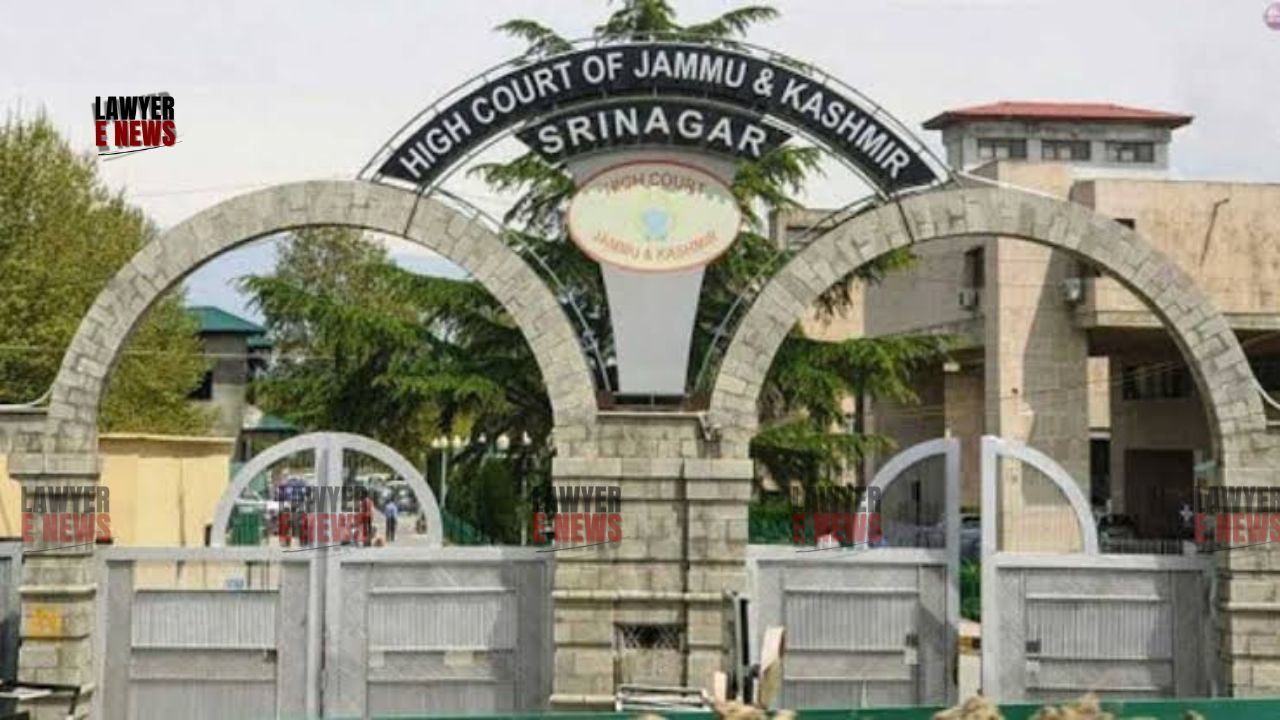-
by Admin
15 February 2026 5:35 AM



High Court of Jammu & Kashmir and Ladakh at Jammu delivered a significant ruling in the case of Nagar Singh v. Union Territory of J&K & Others. The court ordered the removal and closure of the petitioner's history sheet from the Police Station Gandhi Nagar, Jammu, deeming the continued surveillance to be a violation of legal procedures and personal rights.
Nagar Singh, a 72-year-old businessman from Jammu, filed a writ petition under Article 226 of the Constitution of India. He sought removal of his name from the surveillance register and deletion of his history sheet at the Gandhi Nagar Police Station. Singh had been previously implicated in several criminal cases, including FIR No. 247/2009 and FIR No. 107/2006. However, he was acquitted in both cases. Despite these acquittals, the police maintained his history sheet and entered his name in the surveillance register, prompting him to seek judicial intervention.
The key legal question was whether the police had lawfully maintained the petitioner's history sheet under the Jammu and Kashmir Police Rules, 1960. Singh argued that his inclusion in the history sheet violated Rules 698 to 704 of these rules, as he had not been convicted thrice or more, a requirement under Rule 698. The petitioner also claimed that his rights to privacy and dignity had been infringed upon due to the arbitrary exercise of police power.
The court observed that while the police have a duty to prevent crime and maintain public peace, this duty must be exercised judiciously and in accordance with the law. The court emphasized that surveillance and history sheet entries require credible and cogent material indicating that the person is habitually addicted to crime.
Justice Javed Iqbal Wani noted that the maintenance of the history sheet showed "complete non-application of mind on the part of the respondents." The court scrutinized the petitioner's history sheet and found that his acquittals were not recorded, suggesting a mechanical and routine approach by the police. It was emphasized that the opening of a history sheet affects an individual's image and reputation, thereby infringing upon their right to respect for private and family life.
Citing the Supreme Court case of Dhanji Ram Sharma v. Superintendent of Police North District Delhi Police (AIR 1966 SC 1766), the court reiterated that the power to open a history sheet must be exercised based on credible material and reasonable grounds. The court ruled that mere belief is insufficient for such action.
The High Court allowed the petition and directed the respondents to remove and close Nagar Singh's history sheet, stating that the police must ensure compliance with rules and proper application of mind when maintaining surveillance registers and history sheets.
Date of Decision: September 11, 2024
Nagar Singh v. Union Territory of J&K & Others
